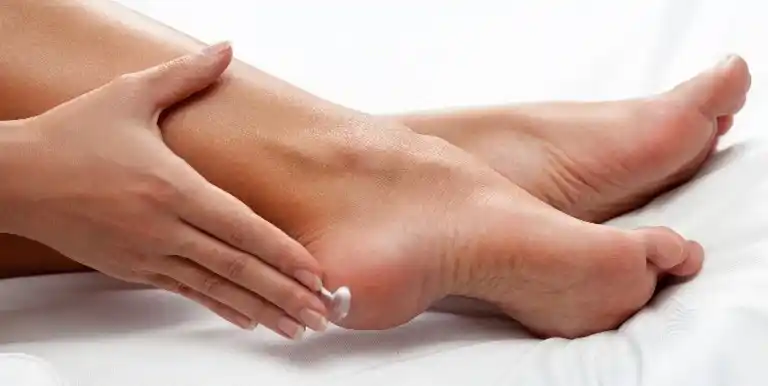Diabetes is a chronic disease that affects how your body uses glucose, which is a type of sugar found in your blood. When you have diabetes, your body is unable to produce or use insulin properly, leading to high levels of glucose in your blood. Over time, high blood glucose levels can damage various organs in your body, including your kidneys, nerves, and feet. People with diabetes who also have kidney disease need to be particularly careful about foot care to prevent further complications.
If you have diabetes and kidney disease, you are at higher risk of developing foot problems. Diabetes can cause nerve damage, which can reduce your ability to feel pain, heat, and cold in your feet. As a result, you may not notice cuts, blisters, and other injuries to your feet, which can lead to infections and other complications. Diabetes can also reduce blood flow to your feet, which can slow down the healing process and make it more difficult to fight off infections.
Kidney disease can also increase your risk of foot problems. When your kidneys are not functioning properly, they can no longer filter waste and excess fluids from your body. This can cause fluid to accumulate in your legs and feet, leading to swelling and edema. Swollen feet can cause your shoes to fit poorly and create pressure points that can lead to blisters, calluses, and other foot problems.
To prevent foot problems and complications, people with diabetes and kidney disease need to take extra care of their feet. Here are some important foot care practices to follow:

Check your feet daily.
Check your feet every day for cuts, blisters, redness, swelling, or other signs of injury. Use a mirror or ask someone to help you if you can’t see the bottoms of your feet. If you notice any problems, contact your physician immediately.
Wash and dry your feet daily.
Wash your feet with warm water and mild soap daily. Dry your feet well, especially between your toes, to prevent infections.
Moisturize your feet.
Apply a moisturizing lotion to your feet daily, but not between your toes. Dry skin can lead to cracking and bleeding, which can increase the risk of infection.
Wear appropriate footwear.
Wear comfortable, well-fitting shoes and socks to protect your feet. Avoid wearing shoes without socks, high heels, and tight-fitting shoes, which can cause blisters and calluses. Wear shoes made of breathable materials to prevent moisture buildup, which can increase the risk of infection.
Protect your feet from extreme temperatures.
Avoid walking barefoot on hot pavement or cold snow. Wear shoes and socks to protect your feet from extreme temperatures, which can cause burns or frostbite.
Trim your toenails.
Trim your toenails straight across and file the edges with an emery board to prevent ingrown toenails.
Don’t smoke.
Smoking can decrease blood flow to your feet, which can slow down the healing process and increase the risk of infections.
Manage your blood sugar and blood pressure.
Keeping your blood sugar and blood pressure under control can help prevent nerve damage, kidney damage, and other complications that can affect your feet.
Visit your physician regularly.
Visit your physician regularly to have your feet checked and to monitor your kidney function and blood sugar levels. Your physician can also help you develop a personalized foot care plan that takes into account your specific needs and risk factors.
In addition to the foot care practices mentioned above, people with diabetes and kidney disease should also be aware of the warning signs of foot problems. Contact your physician immediately if you notice any of the following symptoms:
- Swelling or redness in your feet or legs
- Numbness or tingling in your feet
- Pain or discomfort in your feet
- Sores or cuts that do not heal
- Foul odor or discharge from a sore
- Changes in skin color or temperature
These symptoms could indicate an infection or other foot problem that needs prompt treatment. If left untreated, foot problems can lead to serious complications, including foot ulcers, infections, and even amputation.
In conclusion, foot care is an essential part of diabetes and kidney disease management. People with diabetes and kidney disease are at higher risk of foot problems and need to take extra care to prevent complications. By following these foot care practices, you can help protect your feet and maintain your health and quality of life. Don’t hesitate to contact your physician if you have any questions or concerns about your foot care. Southwest Kidney Institute is here to help you manage your condition and achieve your health goals.
Southwest Kidney Institute is committed to providing comprehensive care for people with kidney disease and related complications, including diabetes. If you have diabetes and kidney disease, we can help you manage your condition and prevent complications. We are here to help you maintain your health and quality of life.
To schedule an appointment with us, please visit – Southwest Kidney Institute OR Contact Us – 480.610.6100